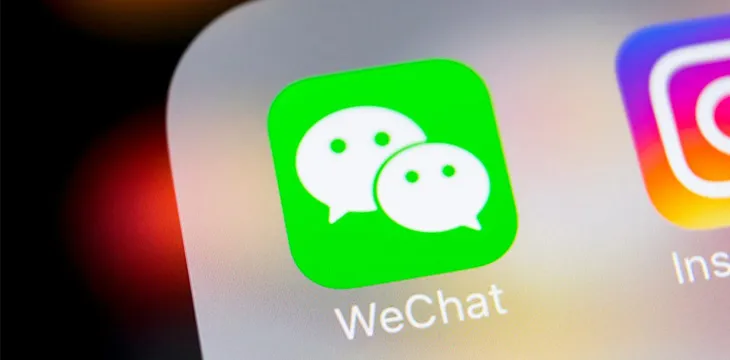|
Getting your Trinity Audio player ready...
|
The blockchain technology is the next stop for Chinese tech giant Tencent. The company is integrating the blockchain to its WeChat app to facilitate expense reimbursement of company employees. The application has already been piloted at a local restaurant in Shenzhen, China, where a user was able to utilise the existing payments service on WeChat Pay to pay the bills, according to the company.
During the trial process, the payment data was sent to the user’s employer, the restaurant (where the expense was made) and to the local taxation authority via the blockchain platform. This, according to Tencent, will eventually reduce the high rate of false receipts. Tencent also hopes that the system will hasten and streamline the reimbursement process.
Some merchants have already integrated to the system for the trials. Shenzhen’s Bao’An Stadium parking lot, a Tencent-owned restaurant and an automobile repair center were amongst the first merchants to try out the system.
This reimbursement system Tencent is introducing will revolutionize payments, especially in China where the payment system can be complex with merchants having to issue different payment receipts for both individuals and firms. Employees have to go through a long tedious manual process of receipt collection and claim filing before they can get a refund on corporate-related expenses.
Tencent has its mind set on tackling payment issues as the tech giant aims to battle tax evasion with its partnership with the Shenzhen government. Tencent has chosen Shenzhen as the pilot city for its blockchain electronic invoices. China employs fapiao, a legal receipt which is an essential component of China’s tax law serving as proof of purchase for goods and services. The new system Tencent is introducing will use the “everything app” WeChat and was announced by the company last August 10.
The integration of the blockchain technology to the WeChat app will ensure that each invoice can be traced back, data can be safely stored and information can be monitored in real time without being tampered with. Once the user makes a payment, he would be able to apply and receive a virtual fapiao which can be placed in his “Card Bag.” From the Card Bag, the employee can choose to submit their invoice for reimbursement. The system will then synchronize the invoice information in real time between the enterprise and the tax bureau.
Asides reimbursements, the WeChat app integrated a new WeChat native wallet last month that allows its users to send and accept Bitcoin Cash on-chain. It facilitates peer-to-peer transfer between friends on WeChat as well as back up backup data with a private key.

 08-02-2025
08-02-2025 





